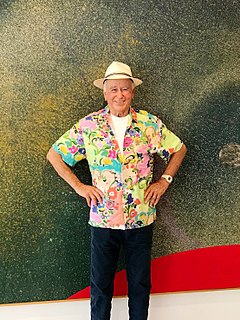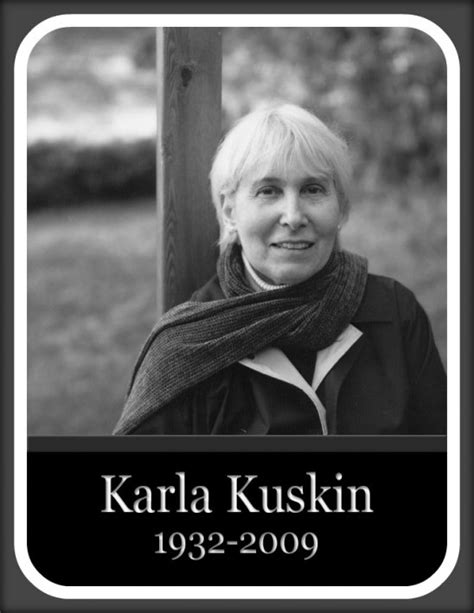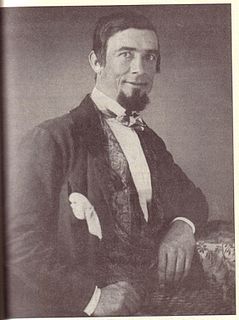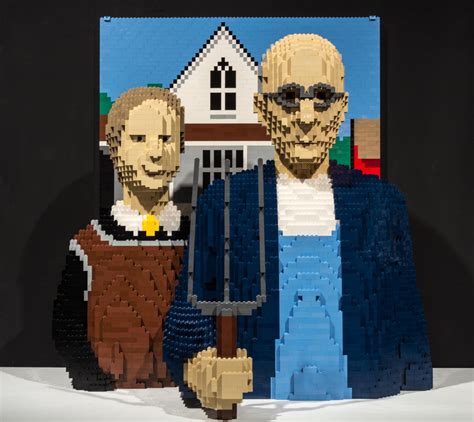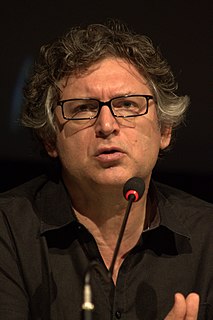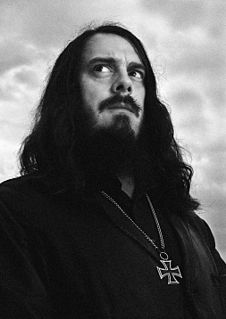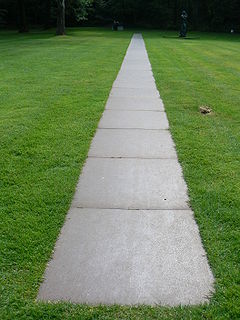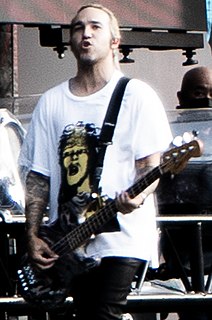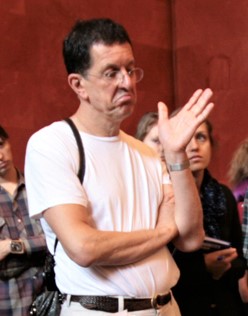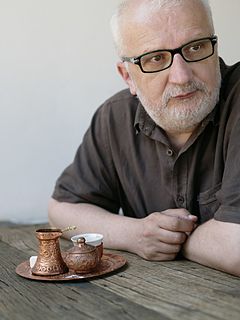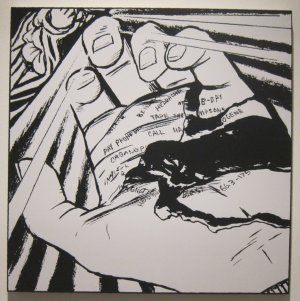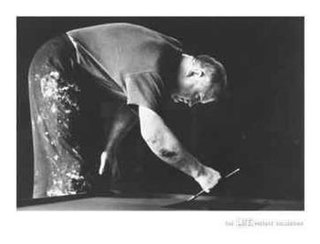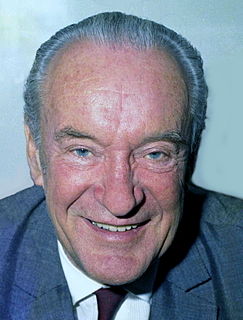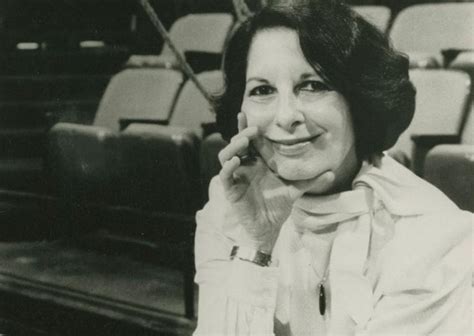Top 1200 Art Critic Quotes & Sayings - Page 3
Explore popular Art Critic quotes.
Last updated on April 20, 2025.
In most modern instances, interpretation amounts to the philistine refusal to leave the work of art alone. Real art has the capacity to make us nervous. By reducing the work of art to its content and then interpreting that, one tames the work of art. Interpretation makes art manageable, conformable.
The hardest thing in the world is being a critic of your own work. For me time has always been the best critic. If I can put something away and then come back, it's like taking a painting you're working on, turning it upside down, squinting at it, or walking away to get a new view. Time helps you know whether it's worth saving or whether it should be dumped.
I never wanted to do music to get girls, right, to get popular, or anything like that. I really love music and I want to make it better the best I can. I can tell when something's real, or when something's put together. I can just feel it. So I'm my own worst critic and harshest critic and I just want to put honest music out there.
All I am in private life is a literary critic and historian, that's my job...And I'm prepared to say on that basis if anyone thinks the Gospels are either legends or novels, then that person is simply showing his incompetence as a literary critic. I've read a great many novels and I know a fair amount about the legends that grew up among early people, and I know perfectly well the Gospels are not that kind of stuff.
The popular distinction between 'constructive' and 'destructive' criticism is a sentimentality: the mind too weak to perceive in what respects the bad fails is not strong enough to appreciate in what the good succeeds. To be without discrimination is to be unable to praise. The critic who lets you know that he always looks for something to like in works he discusses is not telling you anything about the works or about art; he is saying 'see what a nice person I am.
I think that a lot of artists have succeeded in making what I might call "curator's art." Everybody's being accepted, and I always want to say, "Really? That's what you've come for? To make art that looks a lot like somebody else's art?" If I am thinking of somebody else's art in front of your art, that's a problem.
Much like teaching art to young art students age 10 to 15 or so on, you have to break it down into bite-sized pieces, essential components. You have to - you know, at this point I'm so used to operating within given assumptions about art. But when you're explaining art to art students or people who are new to this experience, you have to really go back to the fundamentals.
Edmund Wilson was our greatest American literary critic because he was more than a literary critic: He was a fearless, even radical judge of the society he lived in. (See, for example, _A Piece of My Mind_; _The Cold War and the Income Tax_; the introduction to _Patriotic Gore_.) Our conventional critics cannot forgive him for those scandalous lapses in good taste.
When things get tough, this is what you should do: Make good art. I'm serious. Husband runs off with a politician -- make good art. Leg crushed and then eaten by a mutated boa constrictor -- make good art. IRS on your trail -- make good art. Cat exploded -- make good art. Someone on the Internet thinks what you're doing is stupid or evil or it's all been done before -- make good art.
Art is frightening. Art isn't pretty. Art isn't painting. Art isn't something you hang on the wall. Art is what we do when we're truly alive. An artist is someone who uses bravery, insight, creativity, and boldness to challenge the status quo. And an artist takes it (all of it, the work, the process, the feedback from those we seek to connect with) personally.
Mindfulness is the primary tool in that we get a little space between ourselves and the thoughts and then we actually can be more responsive, as in: Do I want to listen to that? Do I want to ignore it? Do I want to say "no thank you". Do I want to inquire if that's really true or helpful? So we start with mindfulness and we're not engaging, because as soon as we do that, we've given the critic authority. Instead, we want to notice the critic but not give it any attention, not really give it much value.
Art isn't only a painting. Art is anything that's creative, passionate, and personal. And great art resonates with the viewer, not only with the creator...
Art is a personal gift that changes the recipient. The medium doesn't matter. The intent does.
Art is a personal act of courage, something one human does that creates change in another.
Perhaps the critics are right: this generation may not produce literature equal to that of any past generation-who cares? The writer will be dead before anyone can judge him-but he must go on writing, reflecting disorder, defeat, despair, should that be all he sees at the moment, but ever searching for the elusive love, joy, and hope-qualities which, as in the act of life itself, are best when they have to be struggled for, and are not commonly come by with much ease, either by a critic's formula or by a critic's yearning.
Art makes people do a double take and then, if they're looking at the picture, maybe they'll read the text under it that says, "Come to Union Square, For Anti-War Meeting Friday." I've been operating that way ever since - that art is a means to an end rather than simply an end in itself. In art school we're always taught that art is an end in itself - art for art's sake, expressing yourself, and that that's enough.
I've stopped going to see art films because every critic gives them four stars and say things like 'masterpiece,' 'spellbinding' and 'mesmerizing.' I mean, they're doing that with my film, but I don't want to use those blurbs. Critical reviews aren't worth too much anymore because just about every film can get one or two of them.
art is the most general condition of the Past in the present. ... Perhaps no work of art is art. It can only become art, when it is part of the past. In this normative sense, a 'contemporary' work of art would be a contradiction - except so far as we can, in the present, assimilate the present to the past.
In the eight years I worked at newspapers, even during a little stretch when I was a film critic, I was never, ever doing exclusively criticism. In the daily newspaper world, much more value is placed on reporting than on thinking abstractly about art. The eight years I was in newspapers, I was mainly a journalist in the conventional sense, and just doing criticism when there were opportunities.
The one object of fifty years of abstract art is to present art-as-art and as nothing else, to make it into the one thing it is only, separating and defining it more and more, making it purer and emptier, more absolute and more exclusive - non-objective, non-representational, non-figurative, non-imagist, non-expressionist, non-subjective. the only and one way to say what abstract art or art-as-art is, is to say what it is not.
I like art with a sense of humor. I don't have a huge art education to understand everything. I don't think that means that art has to be watered down to the lowest common denominator, though. I don't think you have to go to college to be able appreciate great art, but I like art that doesn't take itself too seriously.
The cynical, caustic, acid-tongued New York drama critic Addison De Witt introduces his protege/date of the moment, a bimbo date and so-called actress named Miss Casswell (Marilyn Monroe) in another very famous line: "Miss Casswell is an actress, a graduate of the Copacabana School of Dramatic Art."
In the movies first impressions are everything. Or, to put it less drastically, in the movies there are no later impressions without a first impression, because you will have stopped watching. Sometimes a critic persuades you to give an unpromising-looking movie a chance, but the movie had better convey the impression pretty quickly that the critic might be right.
Warhol and other Pop artists had brought the art religion of art for art's sake to an end. If art was only business, then rock expressed that transcendental, religious yearning for communal, nonmarket esthetic feeling that official art denied. For a time during the seventies, rock culture became the religion of the avant-garde art world.
The way I try to explain it the best is that if Critic A from publication A hates our show, and Critic B from publication B loves our show, what are we supposed to do with that? We have to just respect everyone's opinions and go on making the show we want to make. I've never worked on a show that was altered by critical reception. You just can't afford to do that. So in that regard, it's actually no different that working in theater. It's just a lot more voices.
Art is personal, originating from dreams, ideas, neuroses; art is shared, harkening back to the humans around the fire; art imbues pleasure and power by enabling people to know reality...Art is a necessity because it is a way of knowing...Is the need for truth physiological? Art exists out of time...images may be different bu there is always a repetition- a thread.

